
Yesterday, we went to the cinema to see the remake of The Day The Earth Stood Still. It was, predictably, awful.
I like blockbuster films. I also like smaller budget films, and contrary to popular belief I even occasionally enjoy art house and indie films. But the price of going to the cinema has risen high enough for me now that I’ve had to limit my visits to see films that meet one very specific criteria:
Will watching this film on a big screen with large speakers improve it or not?
I don’t just pay to see a film with money. I now have to pay in time and brain space.
When a film starts at, say, 21:25, I now know it’ll be nearly ten o’clock before the opening credits roll past me. Film trailers I can deal with; they at least relate to the activity I’m participating in. But TV ads? I didn’t come here to sit through twenty minutes of car and DFS advertising. I don’t have to sit through that much advertising in one go at, where my TV is shown more or less for free.
Then the film starts, and I’m barraged with blatant spots for McDonalds and Windows Vista. This is nothing new; we’re used to this now. Iron Man went crazy on product placement, and still managed to be a worthwhile film. But it smarts when the rest of the film feels lazily put together. I, Robot is another classic example of this.
And the films do feel lazily put together. The climax of The Day The Earth Stood Still involves robot flies. Tanks get thrown around. Things explode. Problem is, I’ve already seen this in a million other films. It’s boring.
What is it about Hollywood that enables its inhabitants to take the recipe for cinema gold and turn it into lead? The Day The Earth Stood Still, based on the 1951 B-movie, has a reasonably chilling plot that was rather deftly updated to move it away from the original ‘50s nuclear paranoia into the more topical environmental theme prevalent today. The lead star – a typically deadpan Keanu Reeves – is perfectly cast as the alien protagonist. So what went wrong?
Well, a number of things, as it turns out. Surprisingly in a film that also involves Kathy Bates and the bland-but-talented Jennifer Connolly, Keanu Reeves out-acts the entirety of the rest of the cast by doing nothing more than staring into the middle distance and speaking monosyllabically*. Bates is particularly appalling as the secretary of defence. Uncertain whether to commit to being a sinister politician or a human bureaucrat, her character swings wildly from one perspective to the other.
Of course, this isn’t necessarily Bates’ fault. The director and screenwriter share much of the blame. The editing of the film is as staccato as the dialogue, which fails entirely to create any interesting or sympathetic characters. It even has a 'cute' child in it, who spends three quarters of the story being a little shit and who we are then expected to sympathise with towards the end. I wanted him to get eaten by the robot flies, the horrifying little snot.
The story – which, as I mention above, could have been easily converted into a great piece of modern science fiction – falls apart every time a character opens their mouth. Plot-holes abound like ring donuts in a police station, and it veers – like Bates’ character – between an indictment of corporate greed, a twee sub-par family drama and a quasi-religious morality tale, stopping occasionally to show us yet another shot of another city in peril from frightened looters.

Ah, yes: the montage of international locations. It’s how Hollywood lets us know they’re interested in the money of people from other countries: set the film in New York or Los Angeles, and then show landmarks from other cities that Americans will recognise as being from International and that people from International will be able to get excited about during the marketing campaign.
Because that’s how we make science fiction, isn’t it? If you find yourself with some free time, count how many times Big Ben has been featured in an American film since Independence Day. We’ve got to be in double figures by now. It’s an obviously British landmark that requires no effort for the scriptwriter.
These landmarks are now an intrinsic part of the sci-fi blockbuster formula, but they are by no means the worst part of that formula. No: that claim belongs to aforementioned marketing promotions and product placement that I have to sit through during my cinema experience. I sat through this film without even a flicker of enjoyment.
I mentioned Iron Man, another film that blew things up. The last third notwithstanding, Iron Man is exciting and witty and fun. The Day The Earth Stood Still is none of these things. Instead, it is a tragic disappointment: a good idea done bad. Worse than that, it’s an example of how cynical Hollywood is towards the consumers. We’re plagued by these films now; idiotic visions of alien attacks that we will defeat by being good and brave and American and by – most importantly – owning Audis.
* Interestingly, during a scene in which Reeves talks in Mandarin to an alien in a Chinese body, my Chinese-native girlfriend was able to understand Reeve’s (heavily accented) speech, but needed the English subtitles to understand his Chinese counterpart’s lines.

 I won’t go into details about how I found this out, but apparently the word ‘Vader’ comes from the Dutch word for ‘father’.
I won’t go into details about how I found this out, but apparently the word ‘Vader’ comes from the Dutch word for ‘father’.




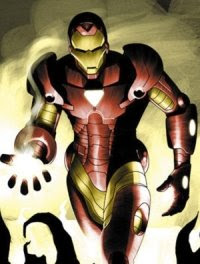 I took Yu to see
I took Yu to see  If you’ve never read it,
If you’ve never read it, 
 There will be another blog post up soon - got a hankering to write about my trip to Berlin, from which I have just returned.
There will be another blog post up soon - got a hankering to write about my trip to Berlin, from which I have just returned.


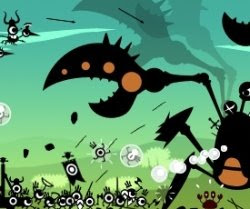 To go with
To go with 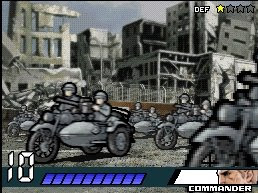




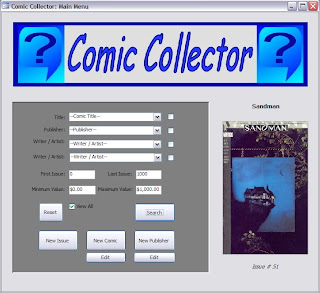 It’s a commonly held – and almost entirely inaccurate – belief that I am somehow a technically apt person. I think this is because I wear glasses. Ever since school, I have often been mistaken for someone who knows about computers. I have even fooled my employers: somehow, I work for a company that builds internet and intranet sites.
It’s a commonly held – and almost entirely inaccurate – belief that I am somehow a technically apt person. I think this is because I wear glasses. Ever since school, I have often been mistaken for someone who knows about computers. I have even fooled my employers: somehow, I work for a company that builds internet and intranet sites.
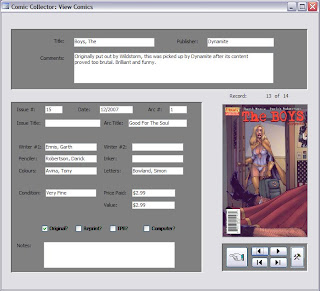




 I now know who the author of
I now know who the author of 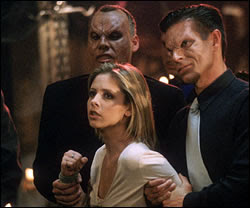 I’ve been thinking recently about vampires.
I’ve been thinking recently about vampires.